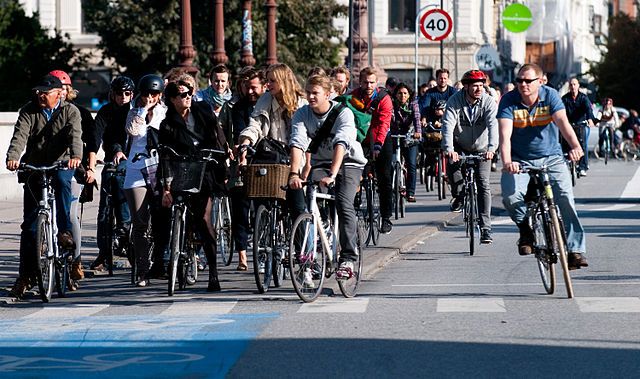Very few cyclists going back and forth to work realise they are entitled to the same type of mileage deductions as motorists. A cyclist who travels 24 kilometres or more to work could be entitled to over 7,000 kroner per year.
Seven out of 10 Danes have never heard of a mileage allowance for cyclists, according to a new study from external consultancy Deloitte.
“We are accustomed to thinking that it is the car that qualifies for deductions, because you use petrol when driving,” Deloitte tax expert Richardt Tabori Kraft told Jyllands-Posten. “But leg power is also entitled to deductions.”
To qualify, the trip between home and work and back again must exceed 24 kilometres.
“A trip of over 24 kilometres has the exact same benefits as driving a car,” said Kraft.
Good money for pedalling
A cyclist or motorist can claim a deduction of 2.05 kroner for every kilometre travelled over the first 24. A person travelling 40 kilometres a day to and from work can therefore earn a deduction of 32.8 kroner per day, or 656 kroner per month for 20 working days in a month. That amounts to over 7,000 kroner each year, even if a month of holiday is factored into the equation.
Cyclists are also entitled to a car allowance if they use their bikes for a work-related purpose – for example, going from the workplace to a client meeting.
READ MORE: Nearly every second Copenhagener cycles to work
The biking group Cyklistforbundet is looking for ways to get more deductions and reimbursements for cyclists. Specifically, they would like to see the compensation per kilometre raised and the distance needed to claim the deduction lowered.
“That will strengthen incentives to use a bicycle in daily life and makes good economic sense,” said Claus Bondam from Cyklistforbundet.















